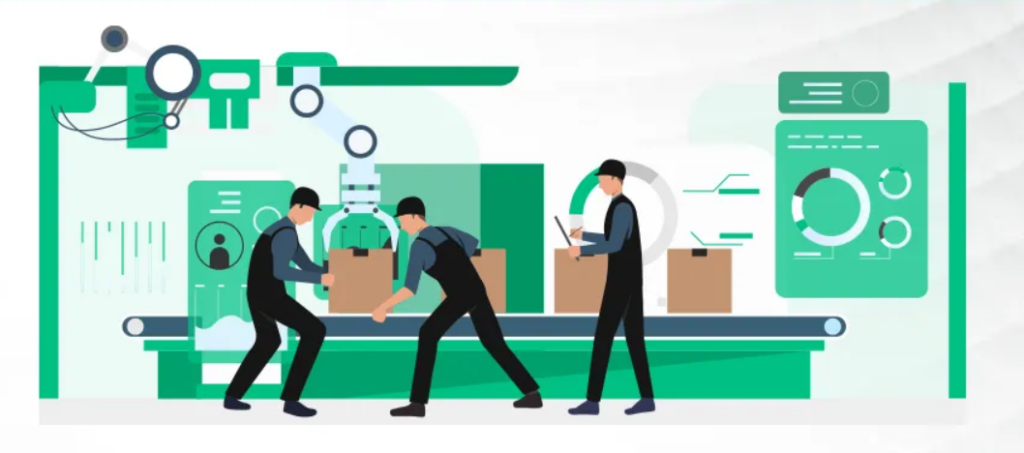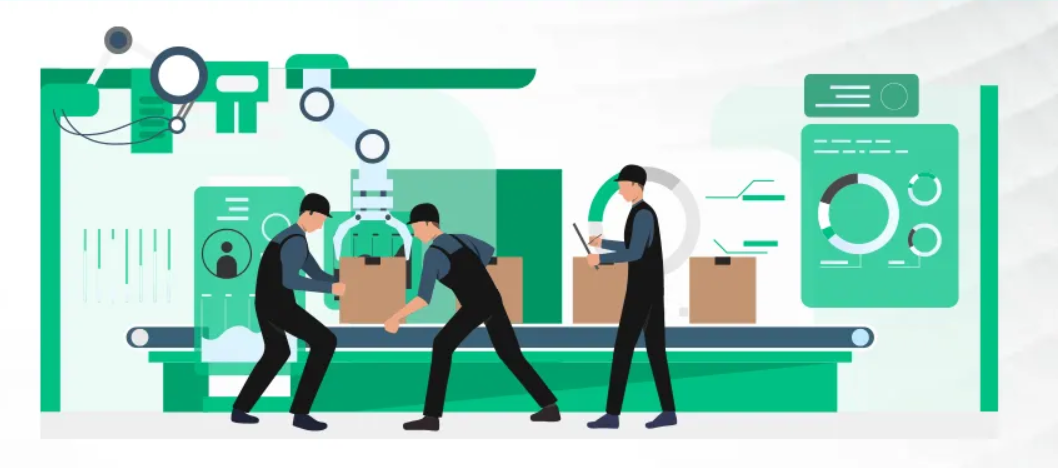In today’s dynamic manufacturing landscape, optimizing operations has become pivotal for sustainable growth and competitive advantage. Enter Manufacturing ERP (Enterprise Resource Planning) Software, a comprehensive solution designed to streamline and manage various facets of production processes efficiently.
Understanding Manufacturing ERP Software

Manufacturing ERP Software acts as a centralized platform that integrates multiple functions within a manufacturing environment. It encompasses various modules, facilitating seamless coordination across departments, including inventory management, production planning, supply chain, finance, and more.
Key Features Enhancing Efficiency
Inventory Management: This feature ensures real-time tracking of raw materials, finished goods, and resources, enabling precise inventory control and minimizing wastage.
Production Planning and Scheduling: ERP systems facilitate optimized production scheduling, aligning resources with demand fluctuations, reducing lead times, and enhancing overall productivity.
Quality Control and Compliance: By enforcing stringent quality standards and compliance measures, ERP software ensures adherence to industry regulations, fostering trust and reliability.
Benefits of Implementing Manufacturing ERP
Implementing ERP software yields multifaceted benefits. It enhances operational efficiency, promotes data-driven decision-making, and significantly reduces operational costs by streamlining processes.
Critical Considerations Before Implementation
Organizations must consider scalability, integration capabilities with existing systems, and the degree of customization offered by the ERP solution to align it effectively with their unique operational needs.
The Implementation Journey
The implementation process involves comprehensive assessment, meticulous planning, phased deployment, extensive training, and continuous monitoring to ensure seamless integration and functionality.
Real-life Success Stories
Case studies demonstrating successful ERP implementation highlight tangible improvements in operational efficiency, cost reduction, improved customer service, and enhanced competitiveness.
Future Trends in Manufacturing ERP
The future of Manufacturing ERP Software is poised for exciting advancements, including the integration of AI and machine learning, IoT-driven automation, and predictive analytics, revolutionizing production methodologies.
Conclusion
Manufacturing ERP Software stands as a cornerstone in the evolution of modern production systems, enabling organizations to navigate complexities, optimize processes, and stay agile in a rapidly evolving market landscape.
FAQs
- Is ERP software only for large-scale manufacturing companies?
- How long does it typically take to implement ERP software?
- Can ERP software integrate with other business applications?
- What kind of training is necessary for employees when adopting ERP software?
- Are there different types of ERP software tailored for specific industries?
